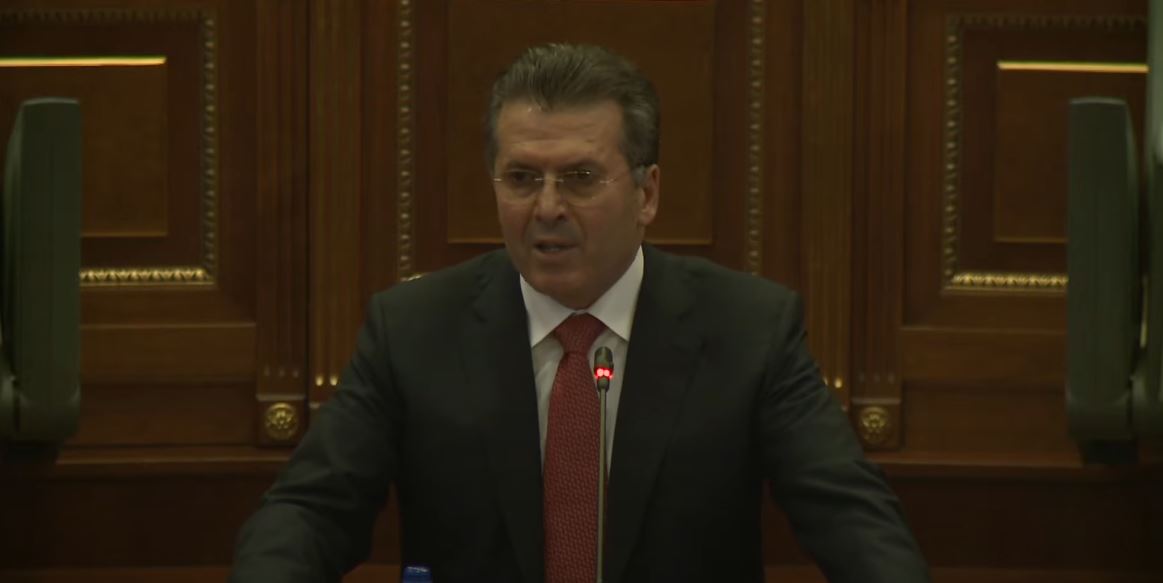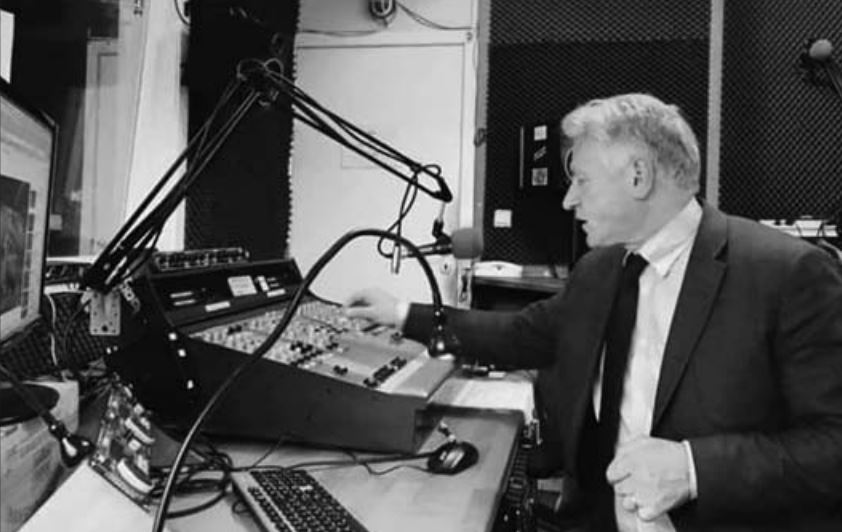As Kosovo gets closer to Council of Europe membership, bringing access to the ECHR, experts tell BIRN that it must take notes from Croatia’s mistakes in conducting war crime trials without the presence of defendants.
The European Court of Human Rights, ECHR, ruled in February 2015 that Croatia did not give former Serb paramilitary Mile Sanader a fair trial when he was convicted in absentia for war crimes.
The ECHR ruling came 24 years after Sanader was sentenced to 20 years’ imprisonment in September 1991 for his involvement in the killing of 27 Croatian prisoners-of-war in the town of Petrinja.
Sanader, convicted in absentia alongside three other Serb paramilitaries, appealed 18 years after the verdict was issued for the case to be reheard in his presence in 2009. Croatia’s Supreme Court then rejected his plea two years later, in 2011.
But the ECHR said that Croatia had not fully respected Sanader’s right to legally defend himself because he “had no opportunity to challenge the factual findings of the judgement by which he had been convicted”.
Kosovo has also introduced trials in absentia for war crimes, considering that very few suspects have been tried since the end of the Kosovo war, mainly because of a lack of judicial collaboration with Serbia.
The Kosovo prosecution on May 14 said it had filed one indictment in absentia against three persons accused of war crimes. In 2023, eight indictments were filed in absentia against 61 accused.
As Kosovo increases the focus on war crime trials, 25 years after the war, experts warn that Kosovo must learn from Croatia and follow legal procedures rigorously.
If Kosovo joins the Council of Europe, its citizens will have the right to seek justice from the ECHR, an option not possible so far, which might have financial and time consequences.
In March, the Council of Europe’s Parliamentary Assembly Committee on Political Affairs and Democracy voted to recommend that Kosovo joins the organisation, despite Serbia’s opposition.
In adopting this opinion, PACE effectively forwarded the final decision to the Committee of Ministers, the final hurdle before membership.
Since then, Kosovo’s membership has been conditioned on concrete moves to establish an Association of Serb-Majority Municipalities, as became clear when Kosovo PM Albin Kurti met ambassadors from France, Germany, Italy, Britain and the United States in early May.
Nonetheless, Kosovo citizens are closer than ever to having access to another justice institution to hold local authorities accountable for potential violations of their rights.
Naim Qelaj, Kosovo’s Ombudsperson, told BIRN that “the standards of the ECHR are very clear: increase the professional capacities of the judges in these cases to avoid any potential procedural error and to respect the minimal standards” of the rights of the accused.
“It is important for the [Kosovo] justice system to know that all of these trials might end up in the ECHR,” he said, adding that “it was costly for Croatia because cases that went to the ECHR came back positive for the accused, causing [Croatia] financial harm on top of the judicial one,” he said.
“The courts [in Croatia] did not manage to build a standard of trials based on facts and evidence that prove these facts… this must not be repeated in Kosovo,” he warned.
Accused must be aware of charges
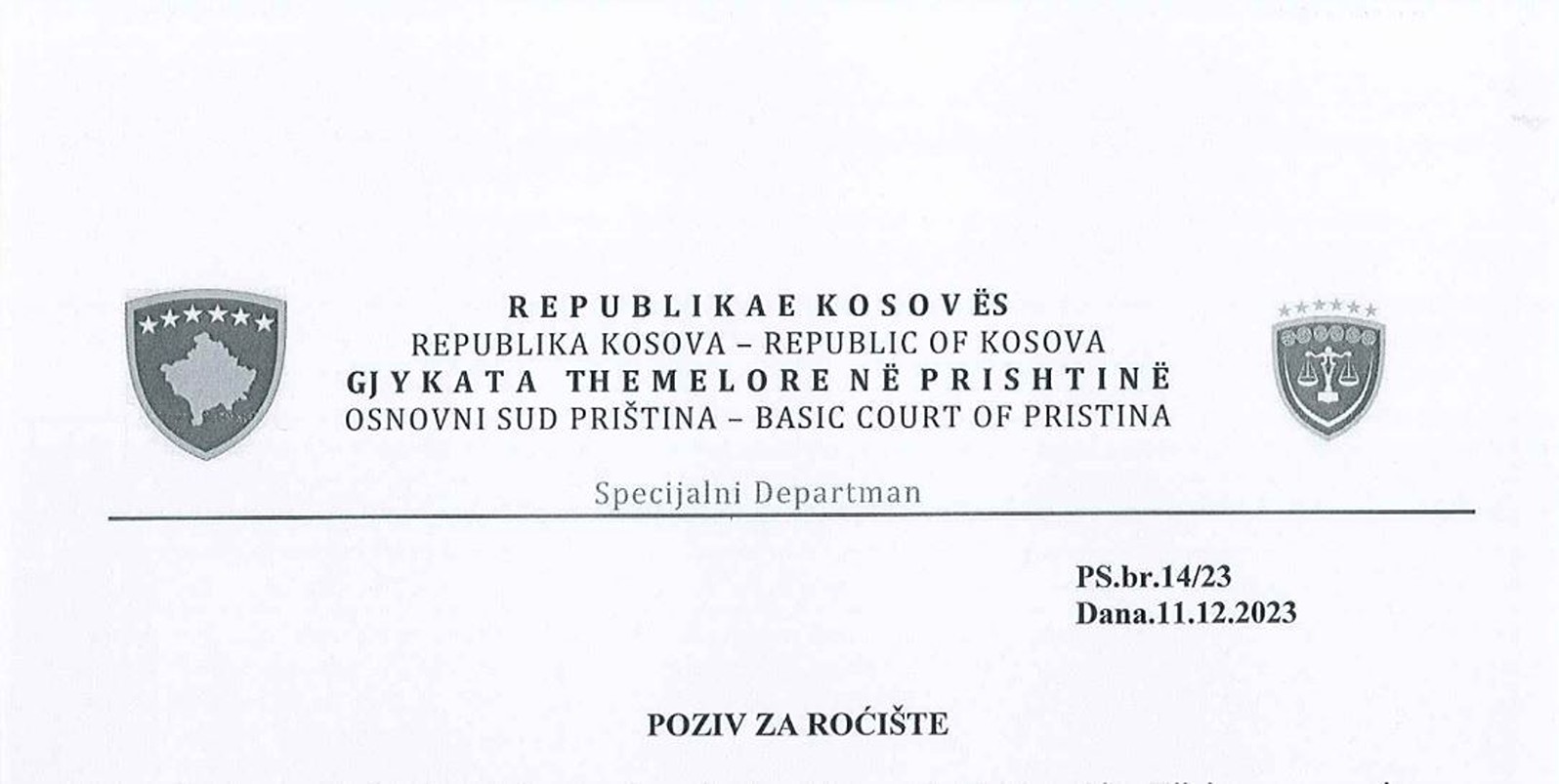
Invitation for appearance at an initial hearing sent by Pristina Basic Court in the Serbian language to an ethnic Serb accused in absentia for war crimes. Photo: Screenshot/Official document from Kosovo’s Special Prosecution Office.
Kosovo legal framework grants the accused procedural guarantees. They include a right to a proper defence, a right to be notified of a process against them, and right to a retrial.
One key issue is that it will be difficult to verify whether a person has been informed of the ongoing procedure against them.
According to the Humanitarian Law Center Kosovo’s 2023 report, “with Kosovo’s accession to the Council of Europe and the right of the parties to initiate proceedings before the European Court of Human Rights, these judicial processes can be quite debatable, knowing that judicial procedures in Kosovo can commence even without receiving an official response from the accused in absentia that they are aware that a judicial process is underway against them”.
Ombudsperson Qelaj told BIRN that Kosovo’s legislation provides “the minimum provisions that create the possibility for the guarantees to be implemented in the procedure in absentia”.
“If these are implemented, minimum rights are offered, and as the Ombudsperson I can accept it,” he said, adding that in principle he remains against the idea.
Artan Qerkini, a Kosovo-based lawyer, told BIRN that “a person cannot be tried in absentia if all reasonable efforts are not made to ensure participation in the trial”.
Kosovo’s legal framework requires the “invitation for the court session be presented in the official newspaper, then posted in the municipality where the accused had their last place of residence, the invitation to be published on the website of the prosecution and the court … [and] the international arrest warrant,” he explained.
If the accused is not reachable, or does not present themselves in court even “after all these efforts, then the trial can proceed in their absence”.
Amer Alija, a Humanitarian Law Centre Kosovo lawyer, believes that ensuring the “informing of the suspect and later accused in absentia that a procedure is being developed against him” will be difficult when many of the suspects are in Serbia.
In March 2022, BIRN reported that in cases concerning war crimes committed during the 1998-99 Kosovo war, legal cooperation between the two countries has been almost non-existent. The situation remains the same now.
“The lack of knowledge that a procedure is ongoing against a person in Kosovo is certainly a deficiency, which the Strasbourg court (ECHR) would certainly require as evidence that Kosovo should provide to prove that the accused is really informed,” Alija said.
The ECHR ruling on Sanader said that there was no evidence that Sanader was ever notified about the case, or that he was absent from the trial in Croatia because he was trying to escape justice.
“It has not been shown that he had any knowledge of his prosecution and of the charges against him or that he sought to evade trial or unequivocally waived his right to appear in court,” it said.
Croatia was ordered to pay Sanader 4,000 euros in damages and 2,500 euros in costs.
Therefore, “although Kosovo will fulfil its obligations in accordance with the law, there will not be any evidence that the suspect was actually informed”, Alija said.
Croatia’s justice authorities tried around 38 per cent of those accused of war crimes in absentia in 2017 and an average of 70 per cent in the period 2020-2023, according to Dokumenta, a Croatian NGO working on documentation of war crimes.
Lawyers face challenges with absent clients
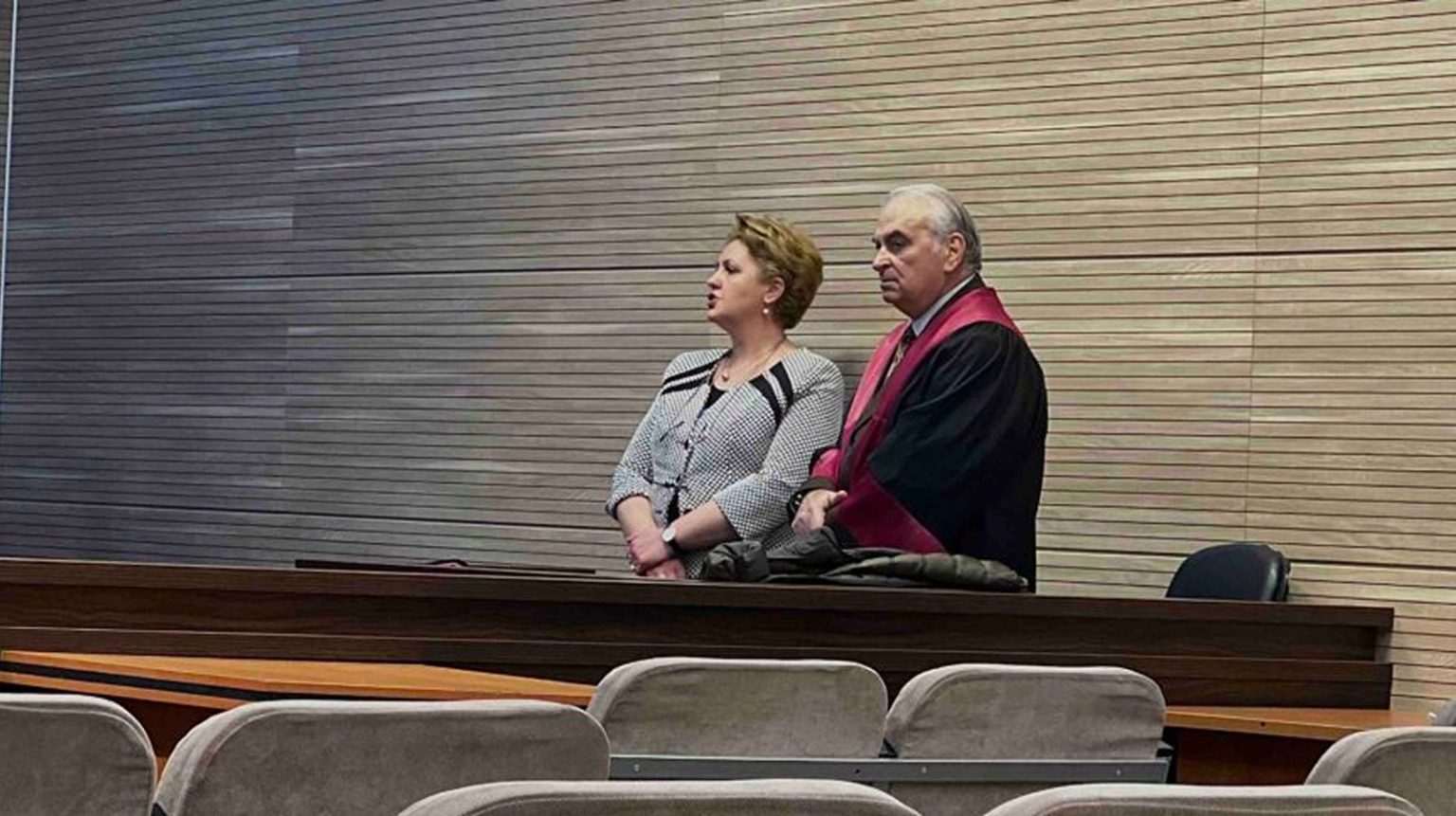
Lawyer Ljubinko Todorovic (right), representing absent defendant Milovan Jovanovic, with the court’s interpreter at Pristina Basic Court on February 21, 2024. Photo: BIRN.
Those accused in absentia in Kosovo will be represented by a state-appointed lawyer, who according to experts, will face many obstacles in defending someone not present.
Qerkini told BIRN that the main guarantee for the rights of the accused is the lawyer, and “the state at its own expense will appoint a lawyer to be a guarantor to protect the defendant’s procedural rights”.
However, he added, “the lawyer will have a very difficult time because according to the law on lawyers and the code of ethics of lawyers in Kosovo, the defendant and the lawyer cooperate in creating a defence – but the lawyer will not have the help of the defendant since they are being tried in absentia”.
Alija also agrees that lawyers will face obstacles. For example, the biggest war crimes indictment filed by the Kosovo prosecution so far involves 53 ex-members of Serbia’s military and police forces charged over the Meja village massacre of April 1999, which left 377 Kosovo Albanians dead. All are being tried in absentia.
“The Bar Association will appoint an ethnic Albanian lawyer to represent the defendants because there are very few ethnic Serb lawyers in Kosovo,” Alija said, adding that “the lack of consultation between the clients and the lawyer and the lack of the proposal of evidence from the defence will give an advantage to the prosecution”.
However, talking about the inability of the defendant to inform the lawyer of their whereabouts and other evidence of the time of the alleged crime, Qerkini told BIRN that “an alibi is not the only defence. For example, the lawyer will have the statements of the witnesses and can see that there might be inconsistencies and can use this detail. Also, if there is any evidence that was obtained illegally, it can be challenged regardless of the presence of the defendant”.
Alija told BIRN: “There will be obstacles for prosecutors and judges,” as well, emphasising that it would not be their fault if there are legal shortcomings, as the law is currently being implemented as is.
Retrials could take years
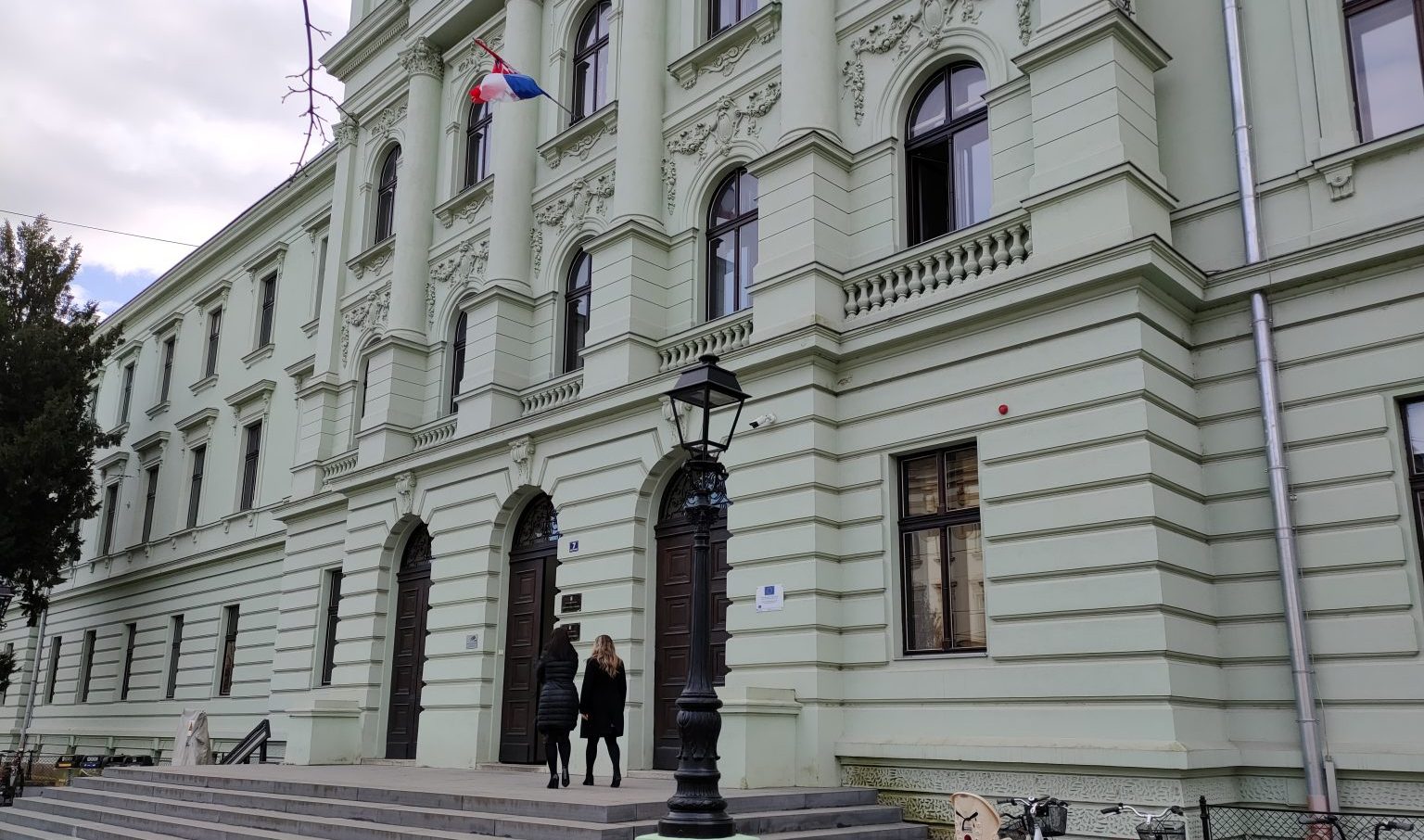
Osijek County Court, which in March 2023, convicted in absentia Aleksandar Vasiljevic, former head of the Yugoslav People’s Army’s Counterintelligence Service, of war crimes against Croatian civilians and prisoners of war. Photo: BIRN/Vuk Tesija
Kosovo guarantees the right to a retrial in cases where the accused are arrested in mid-procedure or want to appeal after a verdict has been made.
BIRN has reported that Kosovo justice takes long to materialise. Trials in absentia are being held 25 years after the alleged crimes happened. Potential retrials might prolong justice even more.
“The moment the accused becomes accessible to the justice bodies, they have the right to request a retrial … to be judged in their presence”, Qerkini explained. If this clause is properly implemented, the ECHR would not be able to make the same decision as it made in the Sanader case. Nonetheless, very long proceedings are likely.
“The prolongation of the proceedings will certainly happen because if the person is arrested, they automatically have the right to request a retrial,” he emphasised.
Many retrials start decades after the initial verdict. For example, according to Dokumenta’s 2020-2021 report, US citizen Dusko Vujnovic was sentenced in absentia to 10 years in prison in 1997, a verdict also confirmed by the Croatian Supreme Court in February 2000.
He requested a renewal of the proceedings 20 years later when he was arrested in Frankfurt in 2020, based on a European arrest warrant.
According to Dokumenta, in 2021, in 12 per cent of the proceedings, “defendants convicted in absentia requested the renewal of the proceedings after they became available to the judicial authorities of the Republic of Croatia”.
Qerkini explained that the trial in absentia for the Meja massacre, with 53 accused, will take a long time to reach a verdict, and even longer if the accused appear during or after the proceedings.
“The very fact there are so many accused means that the process will take a lot of time,” he said.
However, he is certain that “it will not be possible for the ECHR to find a violation of the principle of finalising the proceedings within a reasonable time because the defendants’ behaviour is taken into account. If the defendant has affected the prolongation, by not being present, no violation can be found,” he said.
However, Alija and Ombudsperson Qelaj, in separate interviews, noted that most retrials in Croatia found the defendants not guilty, often because of procedural violations found in the trials in absentia.
Kosovo not only cannot find many suspects in war crimes cases because they are no longer in the country but faces major obstacles extraditing them from Serbia, where parallel proceedings often take place.
But Qelaj is hopeful overall. “I believe that trials held in absentia when Kosovo is a member of international mechanisms, and its sovereignty will not be contested, can have a special effect because every state must implement the orders to extradite citizens to the country that issued the warrant,” he concluded.
Please enable JavaScript to view the comments powered by Disqus.
